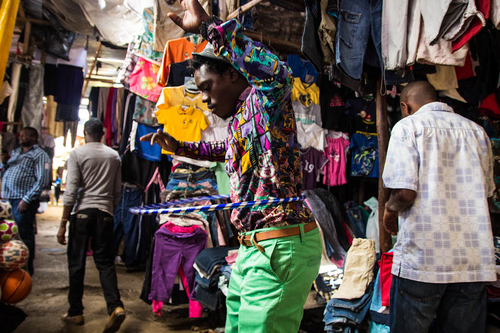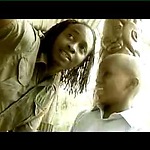Curious to know about Kenya's popular culture? The answer is to look at what interests the youths and how they express themselves. Especially in a country like Kenya where the majority of the population falls in the category youths, the popular culture gives an accurate representation of today's society. Youths are born into a certain stream in popular culture and they are the ones who shape its development. More and more youths reside in urban areas, which has a huge influence on their culture. Mobile phones, and more importantly, social media are the main platforms for youths to shape their identity and become influenced by each other. This type of culture evolves incredibly rapidly.
Music
"Muziki ni Maisha." Music is life. Kenyans play music all day and it is heard everywhere. Even in the slums most people have a small tv and a stereo installation on which they blast music all day long. In matatus, the public transport vans, loud music is played during the entire ride. At parties or celebrations music is played. Whereas Sundays are the 'quiet' days' in The Netherlands, this is not the case in Kenya. All day long churches play gospel music and wherever one goes, music is heard.
Generally, the music is influenced by a wide array of genres such as pop, reggae, and hip hop. In addition, there is the genre of 'Swahili' music, which is widely listened to in Kenya, Uganda and Tanzania. An example of this can be found in the video above. Music from "Western" artists is often remixed in such a way that it becomes funkier and with a touch of reggae.
Fashion
The dress code amongst most youths is non-formal, which means mismatched skirt suits, but also pencil jeans and eye-catching jewellery (Osanjo 2012). Again, international influences are important as this is what most youths are exposed to through television and social media. Many youths copy international fashion trends and mix that with there own style.
Language
The language that is most associated with being part of popular culture is sheng. This form of language is often a mix of English, Kiswahili, Kikuyu and Luo languages. It is similar to Pidgin English or patios that are found in Jamaica. Many critics would refer to this as a so-called "corrupted" form of English. Sheng originated in the slum areas of Nairobi, and for this reason it is often associated with a 'lower class of people' (Osanjo 2012).
Ubuntu philosophy
Ubuntu roughly translates to "human kindness". The philosophy around this concept came up as a response to increasing poverty levels and a lack of help from the government.
Osanjo (2012) describes this as:
"Ubuntu is an ethnic or humanist philosophy focusing on people’s allegiances and relations with each other. Ubuntu philosophy holds that a person is a person, through other persons.
In the spirit of ubuntu you are your brother’s keeper and together you are one. Ubuntu is emerging as a universal African philosophy. In East Africa, ubuntu refers to the human characteristics of generosity, consideration and humaneness towards others in the community."
References:
Osanjo, Lilac. 2012. "Popular culture, education, and ubuntu in Kenya" Accessed October 28, 2015. Available from: http://designmagazine.co/wordpress/2012/08/18/popular-culture-education-and-ubuntu-in-kenya/

